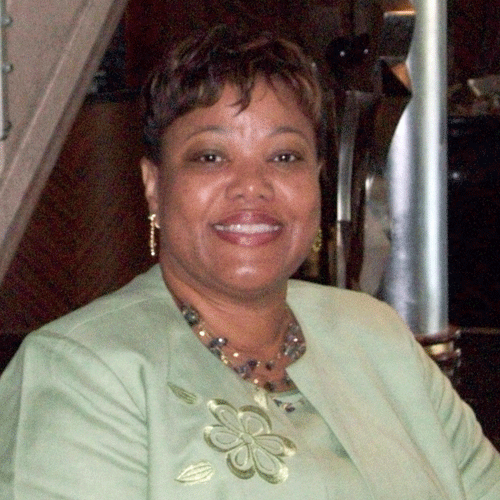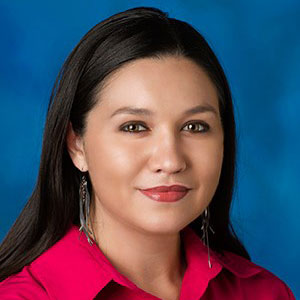Active/Applied Research on Online Learning and Quality Assurance
This conference is focused on research-supported best practices and takeaways that attendees can apply in their own work. Join us to watch a number of experts from the QM community present on Active/Applied Research on Online Learning and Quality Assurance in the space of a single afternoon. Each session will provide attendees with one or more application-based takeaways and a handout.
Concurrent Sessions
Attendees can choose one session from each time slot. Secure Zoom links will be emailed to registrants the day before the conference. Select the session name below to see presenter and description information.
1:40 - 2:30 p.m. Eastern
- 1. Developing a Framework for Quality Online Course Videos: What Does the Research Say?
Presented by Steven Crawford, District Director, Maricopa Community Colleges
There are many factors to consider when using videos in online courses, and this session will identify some of those key factors. This will be done by highlighting the educational research to present a framework for quality online course videos that can guide your development and usage of video in online courses. We will also review what factors to consider as you review future research articles and identify what it means for your practice as an educator.
- 2. Student perspective 2.0: Where do we go from here?
Presented by Penny Ralston-Berg, Senior Instructional Designer, Pennsylvania State University
Join this session for a brief overview of research related to student views of quality online learning followed by an active discussion about how we might include the student point of view in future research projects. What questions should we ask? What do we need to know to help tomorrow’s students succeed? Bring your ideas!
- 3. Enhancing Accessibility of Online Courses: Course Development Practices and Tools
Presented by Barbara Frey, Senior Instructional Designer, Point Park University; and Rae Mancilla, Senior Instructional Designer, University of Pittsburgh
Since 2003, Quality Matters (QM) has been a pioneer of best practices in the field of instructional design. Standards 7 and 8 of the QM Higher Education Rubric (6th edition, 2018) provide critical guidance on making online courses accessible to learners with disabilities. In addition, the Universal Design for Learning framework emphasizes an inclusive, proactive approach to course development for faculty, instructional designers, and support staff. This study examines the accessibility practices (i.e., color contrasts, document design, captioning, alt text) and tools leveraged by course developers when creating digital course materials. The presentation focuses on the results of a QM benchmarking survey measuring the impact and effort of common accessibility practices and applications.
2:40 - 3:30 p.m. Eastern
- 1. Reconstructing the Table: Designing Culturally Affirming Online Learning Communities at an HBCU Through Quality Matters
Presented by Racheal Brooks, Coordinator, Office of e-Learning, North Carolina Central University; Zakaria Jouaibi, Senior Instructional Designer, North Carolina Central University; Laurell Malone, Coordinator, North Carolina Central University; Gail Hollowell, Associate Professor, North Carolina Central University; Larrisha McGill-Youngblood, Program Director, North Carolina Central University
This session will take the format of a panel discussion framed by Gay's (2010) six attributes of culturally responsive teaching. The five-member panel will provide concrete examples of online instructional design and subsequent delivery practices that are reflective of Gay's six attributes of culturally responsive learning environments being validating, comprehensive, multi-dimensional, empowering, transformative, and emancipatory. Examples presented will simultaneously highlight the aligned QM Rubric Standards that support the use of each of these attributes in the design of online courses at North Carolina Central University.
Through their participation, session attendees will receive examples of how instructors and instructional designers could practically apply Gay's attributes and QM Rubric Standards to (re)create online learning environments that are culturally affirming. Attendees will provide feedback to the NCCU team to help inform an upcoming ethnographic study regarding the use of culturally affirming instructional design practices across multiple institutional types.
- 2. Implementing High Impact Practices on Campus and Online: Research, Resources, and Requests
Presented by Andria Schwegler, Associate Professor, Psychology, Texas A&M University - Central Texas
High impact educational practices (HIPs) are touted for their association with student retention and engagement; however, implementation of these practices at most institutions is “unsystematic” (Kuh, 2008, p. 9). To address this concern, my institution is developing an intentional approach to foster faculty engagement with HIPs with the goal of embedding them across the curriculum. This initiative has led to the development of resources to support faculty and staff work in HIPs including a review of research, revealing significant gaps in what we know about them. This session will summarize research on HIPs, analyze the dependent variables measured in this work, and provide recommendations for future research and collaboration. An online document of research regarding each HIP (i.e., student research, capstones, ePortfolios, internships, writing intensive courses, service-learning, and diversity and global learning) will be shared with attendees with a request to contribute additional research citations to expand this resource to facilitate HIP initiatives across our institutions.
- 3. Building Momentum for QM Implementation at your Institution - Tips for Transitioning
Presented by Barbara Altman, Associate Dean and Associate Professor of Management for the College of Business Administration, Texas A&M University - Central Texas
You are starting to implement QM at your institution and are really excited about it! It provides a great tool for designing and delivering well-crafted online courses geared to student engagement and achievement of student learning outcomes. But then…others don’t seem as excited; why is that? In this session you will learn about the Quality Assurance Continuum of Excellence – a tool that charts how schools move along a progression toward a culture of online quality infused throughout the organization. Grounded in Quality Matters research studies and change management and diffusion of innovation theories, this session will help you with tips to transition along the continuum and move your organization towards more comprehensive QM implementation.
3:40 - 4:30 p.m. Eastern
- 1. Improving Course Design Quality Through Online Graduate Student Evaluations
Presented by Amy Grincewicz, Director of Instructional Design – CoBA, Kent State University; Cathy DuBois, Associate Dean for Graduate and Online Programs
Quality feedback is a crucial ingredient in learning. In any design process, a designer must understand the user’s needs, assess trade-offs and analyze alternatives based on a list of criteria. A fully online MBA program developed with quality assurance processes and goals utilized module surveys and end of the course student evaluations to improve course design. The College of Business Administration (CoBA) is dedicated to creating competitive online courses to meet the needs of students, employers, and faculty. In an effort to create quality online courses, CoBA has elected to adopt standards of online course design based on the Quality Matters (QM) Rubric™. One of these standards is use of a College-approved learning management system course shell template that includes module surveys. Module surveys focus on the module design by asking about rigor, alignment, interaction, clarity of instructions, and learning activities. The module survey data is reviewed after each offering of the course and paired with the student end-of-the-course evaluations to identify areas for revisions. This data has been extremely helpful in providing a pathway to improve the course design through the user experience.
- 2. Using Data for Our Continuous Improvement and Yours
Presented by Bethany Simunich, Director of Research & Innovation, QM; James Lani, Co-founder and Owner, Intellectus Statistics
QM looks at internal data to understand how our services are being used in the community and how we should improve them. We have been using Intellectus Statistics software in these endeavors for the last half of 2020. Come learn about this statistical software, how QM has used it to our advantage, and how you can, too.
- 3. K-12 Teachers & Professional Development Needs: What the Research Uncovered
Presented by Christine Voelker, K-12 Program Director, Quality Matters; Deborah Anne Banker, Associate Professor, Curriculum & Instruction and Psychology, Tarleton State University
The Covid-19 pandemic brought educational gaps into stark relief. In K-12, it highlighted the professional development teachers needed - and did not have - in order to design high quality courses that would enable them to work well with all of their students. In this presentation we will discuss those needs and a variety of options available for filling them.
About the Presenters
- Barb Altman
Barbara (Barb) Altman, Ph.D., is Associate Dean and Associate Professor of Management for the College of Business Administration at the Texas A&M University - Central Texas in Killeen, Texas. Dr. Altman is interested in research on corporate social responsibility, sustainability, organizational change, public/private partnerships, and improving online and blended course design and delivery. She has over 18 years of teaching experience in online and blended formats. She serves on the Quality Matters Academic Advisory Committee and is a QM Research Colleague.

- Deborah Anne Banker
Deborah Anne Banker, Ed.D., Tarleton State University: Deborah Anne Banker is an Associate Professor in Curriculum and Instruction and in Psychology at Tarleton State University. She has engaged in independent research to improve her online courses and is fascinated by discoveries in the research literature regarding student learning, achievement, satisfaction, and retention in online courses. She is published on teacher preparation and training. She serves as a QM Research Colleague.

- Racheal Brooks

Racheal Brooks, Ph.D., is the Coordinator of the Office of e-Learning and a Spanish and graduate-level research methods instructor at North Carolina Central University. She serves as Co-Chair for the University of North Carolina System Quality Matters Council and is a member of the Quality Matters Academic Advisory Council. Dr. Brooks is a member of the NCCU Distance Education Advisory Council, NCCU QM Coordinator, QM Master Reviewer, QM Program Reviewer, Course Review Manager, Face-to-Face and Online Facilitator of the APPQMR workshop, Face-to-Face Facilitator of the IYOC workshop, iQM Association member (Spanish), and member of the QM Instructional Designers Association.
Dr. Brooks's research interests include online instruction, online curriculum development, digital accessibility, instructional technology, qualitative research methods in education, Spanish language acquisition at HBCUs, second language learner beliefs, and minorities in Spanish language studies. Her recent publications include "Course Design, Quality Matters Training, and Student Outcomes" published in the American Journal of Distance Education and “Online Counselor Education: Creative Approaches and Best Practices in Online Learning Environments” published in Research on Education and Psychology.
Dr. Brooks earned a BA in Spanish from North Carolina Central University, an MA in Spanish Literature from Georgia State University, and a Ph.D. in Educational Research and Policy Analysis with a specialization in Higher Education Administration from North Carolina State University.
- Steven Crawford
Steven Crawford, Ed.D., District Director at Maricopa Community Colleges, has been involved in distance learning for over 20 years at multiple institutions as a technologist, instructional designer, and adjunct faculty. He has authored several articles and chapters on flipped teaching and blended learning. In addition, he is a QM Facilitator and Master Reviewer.

- Cathy DuBois
Cathy DuBois, Ph.D., is associate dean for graduate and online programs at the Kent State University, College of Business Administration in Kent, Ohio. She previously served as associate dean for administration. Prior to joining the dean’s office, Cathy served as professor of management and information systems, teaching graduate and undergraduate courses in human resource management (HRM) and organizational behavior. Her research has addressed the role of the Human Resource function in organizational sustainability initiatives, a variety of gender issues in HRM, among other topics. Cathy holds a Ph.D. in industrial relations and human resource management from the University of Minnesota. She continues to publish her research in top journals and book chapters and presents at national and international conferences. She currently sits on the Editorial Review Board of the Journal of Management Inquiry.

- Barbara Frey
Barbara A. Frey, D.Ed., is an Adjunct Assistant Professor with the School of Education at Point Park University in Pittsburgh, Pennsylvania, and a Senior Optimization Consultant with CampusWorks, Inc. She is also an active Quality Matters Facilitator, Master Reviewer, and Researcher. Barbara's background includes over 25 years of experience as a Senior Instructional Designer with Pitt Online at the University of Pittsburgh and as an Assistant Professor with the World Campus at Pennsylvania State University and the Global Campus of Colorado State University. In addition, Barbara is co-author of the book Distinctive Distance Education Design: Models for Differentiated Instruction (IGI Global Publications, 2011) and a Scholar with the International Board of Standards for Training, Performance and Instruction (IBSTPI).

- Amy Grincewicz
Amy Grincewicz received her Ph.D. from Capella University in Instructional Design for Online Learning. She also has a Bachelor of Science (B.S.) from Heidelberg University in Biology and Mathematics and a Master of Science (M.S.) from the Ohio State University in Evolution, Ecology, and Organismal Biology. She is a full-time senior instructional designer focused on faculty development and the design of online courses for the College of Business Administration at Kent State University. She serves as a Quality Matters Coordinator, Course Review Manager, APPQMR and IYOC facilitator, and Peer, Master and Program Reviewer. She has several publications within peer-reviewed journals and texts that focus on a variety of topics within instructional design.

- Gail Hollowell
Gail Hollowell, Ph.D., is an Associate Professor in the Department of Biological and Biomedical Sciences and Director, Center for Science, Math, and Technology Education at North Carolina Central University. She teaches Principles of Biology: Molecules and Cells. Her research interests include what motivates undergraduates to persist in biology and the impact of technology in the science classroom. She currently serves as co-PI for two NSF-funded projects: The DREAM STEM Project: Enhancing Academics, Entrepreneurship, and STEM Careers & Pathways and Promoting Rural Opportunities for Student Achievement in STEM (PRO-STEM).

- Zakaria Jouaibi
Zakaria Jouaibi, Ph.D., is a Senior Instructional Designer at North Carolina Central University. Dr. Jouaibi is a Quality Matters-certified Program Reviewer, a QM-certified Master Reviewer, QM-certified Peer Reviewer, and a QM-certified APPQMR and IYOC Facilitator. He is also the Professional Development Coordinator for the UNC System QM Council. His research interests include online andragogy and pedagogy, curriculum and course design, inclusive design, and professional development.

- James Lani
James Lani, Ph.D., is the co-founder and owner of Intellectus Statistics, an online data analysis platform that interprets statistical output in plain English narrative. Dr. Lani holds a Ph.D. in Clinical Psychology from Miami University in Ohio and a BSEE degree from CSUF. For the past 25 years, he has consulted with for-profit and nonprofit organizations, and higher education institutions, about research design and quantitative analyses.

- Laurell Malone
Laurell Malone, Ed.D., is the Coordinator of the Office of Faculty Professional Development (OFPD) and Associate Professor at North Carolina Central University (NCCU). She earned a BA in Biology from Earlham College, an MA in Early Childhood Education from the University of Virginia, and both an Ed.S. and Ed.D. in Education Administration from Virginia Tech. Dr. Malone has served NCCU in a variety of leadership positions including Chair of the Department of Educational Leadership, Coordinator of the Master of School Administration Degree Program, Faculty Senator, and Facilitator for the ACUE (Association of College and University Educators) online course in Effective College Teaching. Her expertise and research interests are in instructional leadership; curriculum development and design; culturally responsive pedagogy; and data analysis, assessment and accountability. In her current position as coordinator of a Title III Activity focused on encouraging excellence in teaching and improving the quality of instruction for all students, Dr. Malone has sparked a culture of innovation, collaboration and excitement for the scholarship of teaching and learning on the NCCU campus.

- Rae Mancilla
Rae Mancilla, Ed.D., is a Senior Instructional Designer with the School of Health and Rehabilitation Sciences at the University of Pittsburgh. She has over a decade of design and project management expertise in developing fully online and blended programs, including large-scale course developments. She is an active educator and researcher, teaching graduate and undergraduate courses on Instructional Technology, and is passionate about faculty development for online learning. Her research interests include the professional development of instructional designers, language learning and technology, digital accessibility, and program evaluation.

- Larrisha McGill-Youngblood

Larrisha McGill-Youngblood, D.M., is Director of the Executive Master of Public Administration (MPA) track at North Carolina Central University. She serves as an Instructional Liaison for the University and is a certified Quality Matters (QM) Peer Reviewer. Dr. McGill-Youngblood recently earned a certification from the Association of College and University Educators (ACUE).
Dr. McGill-Youngblood’s research interests include women in leadership, black females in leadership roles, online instruction, instructional technology, qualitative research methods, and minorities and women in higher education. Her recent publications include “Black Female Leaders: Where are they?” published in the Journal of Leadership and Management and
“Part III Diverse Careers and Perspectives” in a book entitled Diversity and Performance: Multidisciplinary and Nontraditional Styles of Leadership and Management in Action.Dr. McGill-Youngblood holds a Bachelor of Science (BS) degree in Business Management, Master of Business Administration (MBA), and a Doctorate of Management in Organizational Leadership.
- Penny Ralston-Berg
Penny Ralston-Berg is a Senior Instructional Designer for the Penn State World Campus. Her research interests include student perspectives of quality and how this impacts design practice, growth of instructional designers from novice to expert, and the use of games and simulations in online instruction. She serves on the Annual Conference on Distance Teaching & Learning (Madison, WI) planning committee and is a member of the Quality Matters Instructional Designers Association and a QM Research Colleague. She is the Quality Matters Coordinator for Penn State.

- Andria Schwegler
Andria Schwegler, Ph.D., is an Associate Professor of Psychology in the Counseling and Psychology Department at Texas A&M University - Central Texas and serves as the Program Coordinator for the Master of Science in Educational Psychology. She has 30 years of experience teaching students from pre-kindergarten to graduate school with over 10 years of experience teaching blended and online courses in higher education. Her research interests include norms related to teaching, participation in course enhancement, quality of feedback in course reviews, academic rigor, the application of human learning research to teaching, and online information literacy. She also serves as a QM Research Colleague.

- Bethany Simunich
Bethany Simunich, Ph.D., has worked in higher education for over 20 years, with a focus on online learning. As QM's Director of Research and Innovation, she helps provide research-based tools, ideas, and solutions to enable individuals and institutions to assess and achieve their quality assurance goals. Her research interests include presence in the online classroom, online student and instructor self-efficacy and satisfaction, and outcomes achievement in online courses.

- Christine Voelker
Christine Voelker is the K-12 Program Director for Quality Matters. She has been involved with K-12 education for over 20 years, with an emphasis on distance learning, library media, instructional technology and professional development. Before working for QM, she ran a statewide partnership grant in Maryland and served as an Educational Technology Teacher Specialist. She holds an advanced certificate in Administration and Supervision, a Master’s in Library and Information Sciences, and a B.A. in both History and Social Sciences Interdisciplinary: Early Childhood Education.


February 9, 2021
1:00 pm - 4:30 pm Eastern (convert time zone)
Free — open to QM members and non-members
Registration for this event has filled! Please email us with your full name and institution if you would like to receive recording links.
